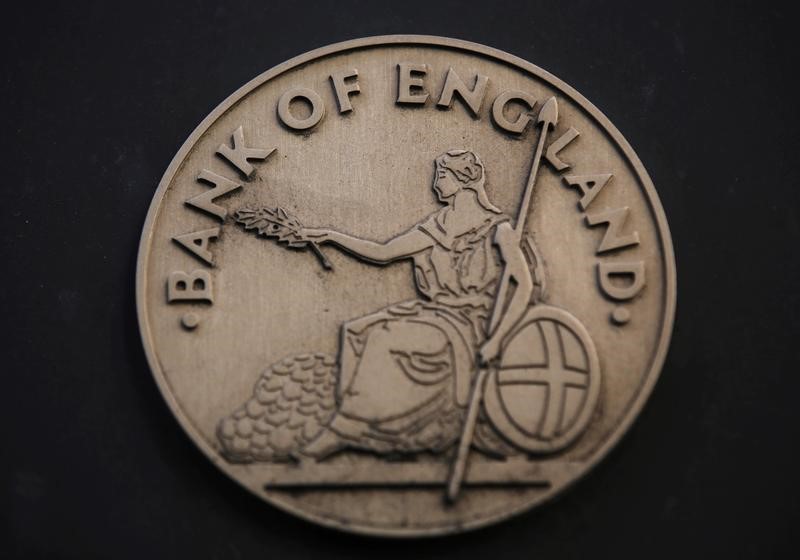(Bloomberg) -- The Bank of England will refrain from raising interest rates next week but is still set to start normalizing policy, according to the National Institute of Economic and Social Research.
Announcing its latest outlook on Friday, Niesr said it now expects the BOE to hike borrowing costs in August instead of this month after the economy made a poor start to the year. But the think tank is more hawkish than the money markets about the medium-term outlook, predicting the benchmark rate will reach 2 percent by the end of 2020 as the economy runs up against its speed limit.
Niesr is the latest forecaster to reevaluate when the BOE might change policy next after growth ground to a near standstill in the first quarter and inflation cooled faster than officials forecast. The implied probability of a rate increase this month dropped below 10 percent on Thursday, having recently been regarded by investors as a near certainty.
“It’s not clear at this stage if this is a soft patch, or the start of a prolonged period of weakness,” Amit Kara, head of U.K. macroeconomic forecasting, told reporters. “In light of the weak economic data that we’ve seen in the first quarter, we believe it’s appropriate for the MPC to wait for another three months, so we penciled in a rate increase for August this year. But of course this is conditional on the recovery.”
Brexit Risk
Thereafter, Niesr predicts a rate increase every six months until the policy rate reaches 2 percent. Its forecasts are based on a scenario in which the U.K. keeps a high level of market access in goods and services with the European Union once it quits the bloc next year.
The institute revised down its estimate for growth this year to 1.4 percent from around 1.9 percent, mostly because of the weather-blighted first quarter. It assumes that growth recovers in the next few quarters, and that it will be around 1.7 percent from 2019 and beyond, in line with its estimate of the economy’s potential growth rate.
There are downside risks to the forecasts for output, however. If the U.K. failed to reach a deal with the EU and started trading with the bloc on World Trade Organization terms, it would likely experience a mild recession and inflation would surge above 3 percent.
“Should economic growth recover back to what we believe is in line with or above that potential growth rate, then it’s appropriate to continue the normalization process,” Kara said. “In terms of the justification of further rate increases, that justification will probably remain the same -- which is that Brexit and other factors have caused us to believe that the potential growth rate of the economy is lower than it’s been in the past.”
The institute also acknowledged that the pressure on Chancellor of the Exchequer Philip Hammond to end the fiscal squeeze is acute and can no longer be ignored. It decided not to take official spending plans as given, instead assuming a pickup in government spending from 2019.
